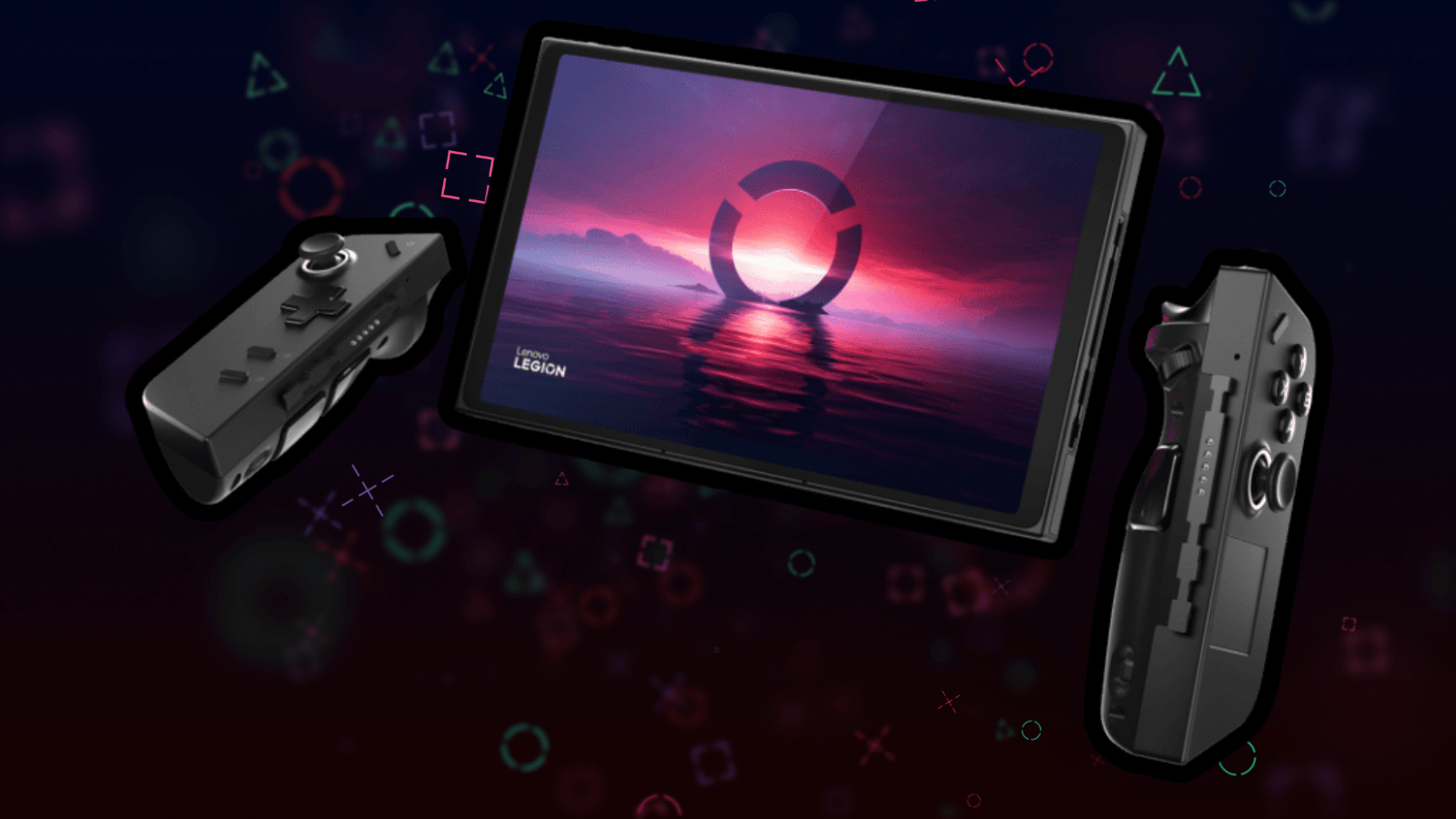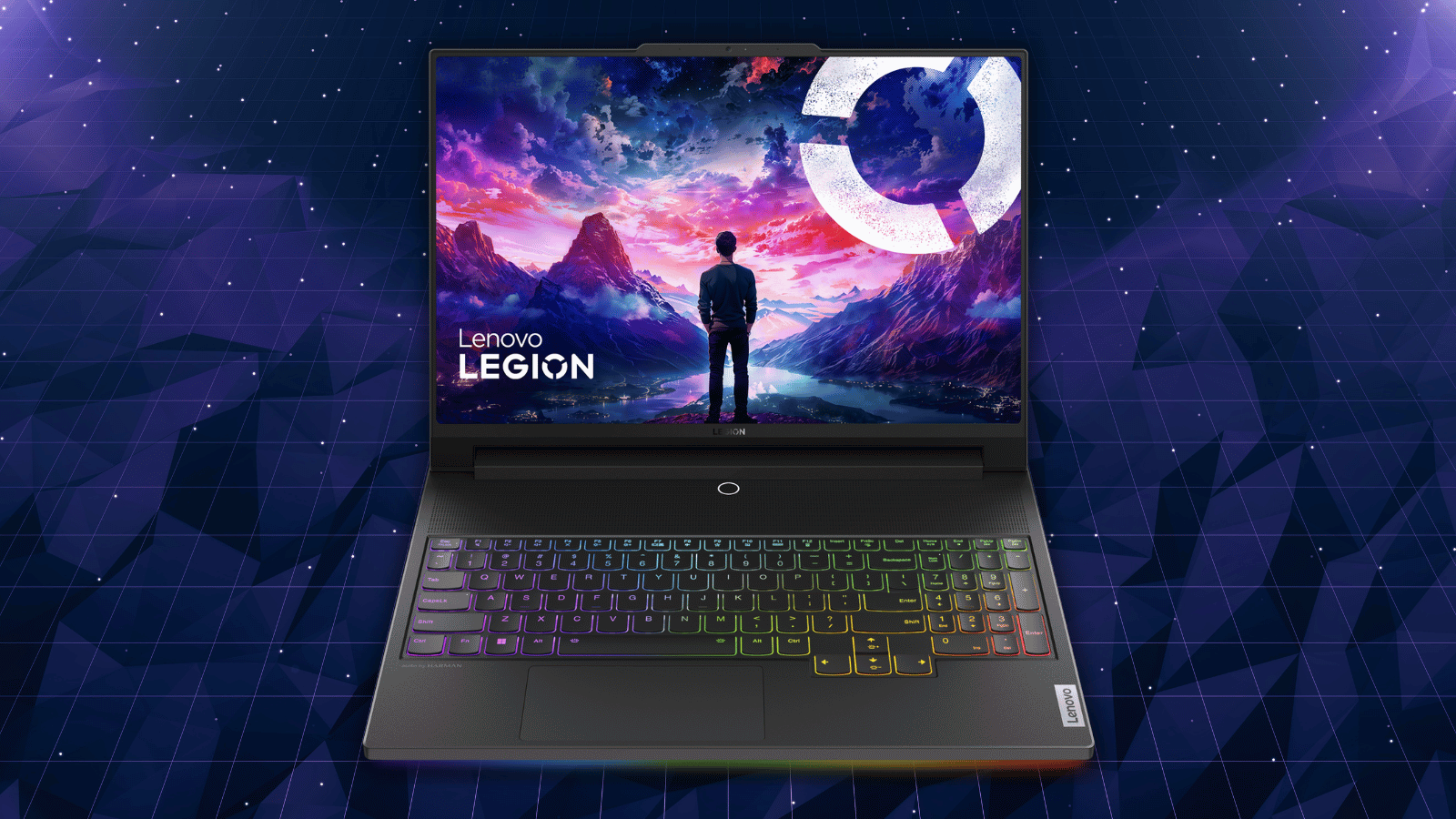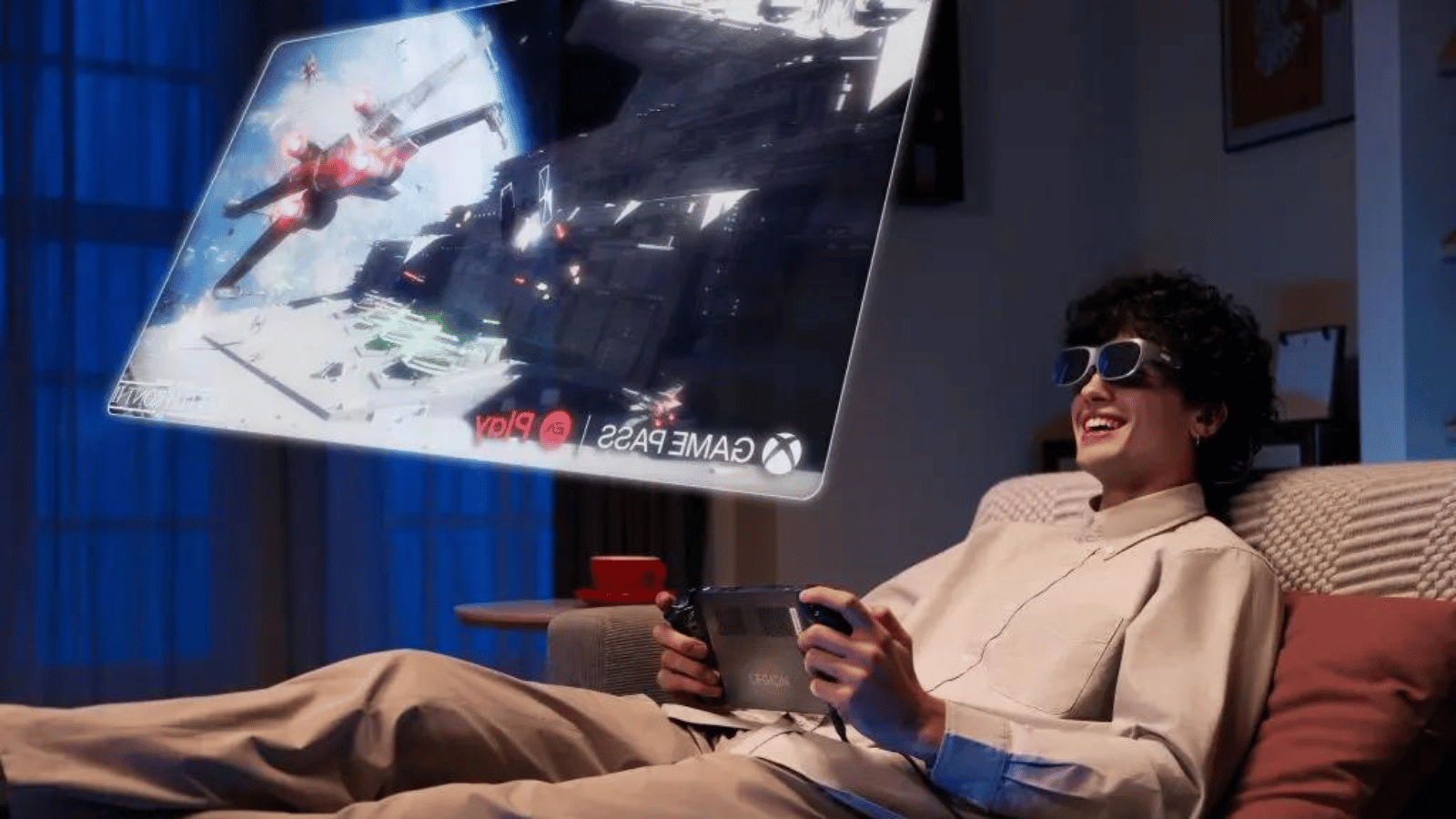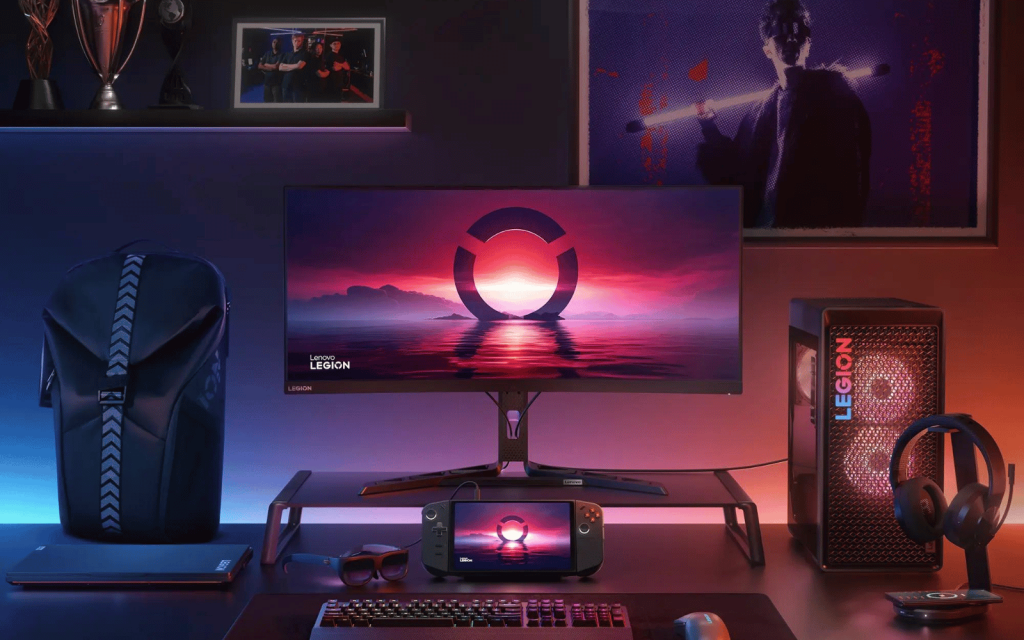Lenovo’s finally gone and ripped the wrapper off its Lenovo Legion Go, the Chinese brand’s answer to the ROG Ally and Steam Deck. We’ve kept tabs on the company’s next handheld gamer since it broke cover in July, now it’s official. However, Lenovo’s reveal of a new monster gaming laptop, the Legion 9i, and a stylish pair of gaming-focused glasses at this year’s IFA was more of a surprise.
Don’t get your hopes up just yet. There’s no word on whether any of these are hitting South Africa’s shelves. Our guess? Lenovo’s biggest fans will be forced to spend some serious (and we mean serious) coinage – especially in the case of the Legion 9i – to get these across the border. Is it worth all the hassle (and a second mortgage)? You can decide that for yourself.
Legions of Switch knockoffs

The Lenovo Legion Go might look like a Switch on the outside, but its internals are more akin to the Steam Deck, ROG Ally, or the other hundred or so mini-PCs that have popped up in recent years. The Legion Go is Lenovo’s first venture into the world of Windows gaming handhelds, and it’s looking mightily attractive.
Up front is an 8.8in 1600p display flanked by decked-out detachable controllers that look like they’ll blow the competition out of the water. The display caps out at 144Hz – as if you’d need more – though it can scale down to 800p and 60Hz when you’re looking to conserve battery.
That… might be the case whenever the Legion Go leaves its dock. Lenovo’s gone and stuck a 49.2Wh that might not handle the 1600p resolution for all that long. The included 65W charger should do enough to counter that, with Lenovo claiming you’ll get a 70% charge in just 30 minutes.
It’s rocking the same AMD Ryzen Z1 Extreme chipset as the Ally but the Go’s stand-out feature is its Switch-like detachable controllers with Hall Effect joysticks. Those should mean stick drift is a thing only Switch owners need to worry about. It’s got all the standard buttons you’d expect to find, with a few extra customizable macro buttons, a scroll wheel, and a thumb trackpad.
There’s plenty more it’ll do if you’re invested enough to check out Lenovo’s announcement for yourself. We’re concerning ourselves with the $700 (R13,100) launch price, and whether it’ll arrive on South Africa’s shores. Considering the Ally and Steam Deck’s South African (albeit late) launch, we reckon the Legion Go has the best chance of arriving on South Africa’s shores from the crop of new Lenovo devices. The Legion Go officially launches in October so we’ll need to wait until then at least.
Legions ahead

Joining the Legion Go’s launch sometime in October comes the Legion 9i. A 16in mammoth of a gaming laptop that’s aimed at, well, gamers and creatives alike. What sets it apart from the rest? The “Legion Coldfront integrated liquid-cooling system” might have something to do with it.
The rest of the 9i’s specs are no slouch. The first thing you’ll notice is the laptop’s 165Hz 16:10 Mini LED display, shrouded in a forged carbon chip cover that promises a ‘unique’ look for each device. For the $4,400 (R82,360) pricetag Lenovo’s attached here, we’d sure as hell hope it’s got something to set it apart.
Now for the innards. These too are just as bonkers as the rest. We’ve already mentioned the internal liquid-cooling system – something that Lenovo doesn’t want anyone forgetting in a hurry. But the real jaw dropper is the 9i’s Nvidia GeForce RTX 4090 GPU, the most powerful on the market. You’ll also have the choice of up to 64GB of RAM and 2TB of storage.
Lenovo’s avoided going down the AMD processor route, instead sticking with Intel’s most powerful laptop chip, the 13th-Gen Intel Core i9-13980HX. That’s joined by a 99.99Wh battery with Wi-Fi 7 and Bluetooth 5.3 completing the impressive package.
FHD vision

The weirdest of the bunch is definitely Lenovo’s Legion Glasses. Moving away from the traditional gaming peripheral, the Legion Glasses are, well… glasses, outfitted with private Micro-LED displays providing 1920×1080 pixels to each eye. It’s limited to 60Hz, but at least offers something a little more robust (and cheaper) than Apple’s big push into AR.
The whole idea is that these are meant to be a companion to the aforementioned Legion Go, though the company hasn’t limited your options to its line-up of devices. It’ll pair well with any supported device, “including most Windows, Android, macOS devices with full-function USB-C.” Oh, and it’s rocking its own set of built-in speakers.
The Lenovo Legion Glasses will launch in October for $330 (R6,180). It’s not clear if these will be sold in South Africa yet. Stuff has reached out to Lenovo South Africa to confirm the Legion line-up’s availability and pricing in South Africa but had not heard back at the time of publication.




